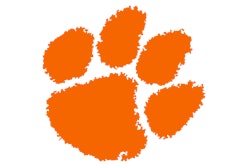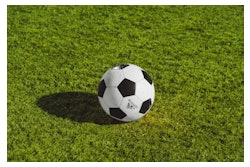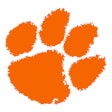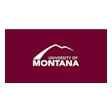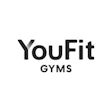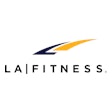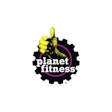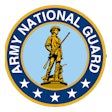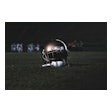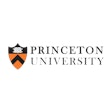![[Photo courtesy of SKIDATA]](https://img.athleticbusiness.com/files/base/abmedia/all/image/2021/04/ab.safetysec421_feat.png?auto=format%2Ccompress&q=70&w=400)
At the beginning of January, the Centers for Disease Control and Prevention announced an order requiring all air passengers arriving in the United States from a foreign country to get tested for COVID-19 no more than three days before their flight departs and to present the negative result to the airline before boarding the flight.
This is just one of the many ways that COVID-19 has altered our daily lives — in some cases forever. Unfortunately, the game-day experience may see a similar disruption.
One company believes that some type of limited health screening upon entry at any sporting event is inevitable. SKIDATA, a digital ticketing platform, recently partnered with HIPAA-compliant health records platform MyOwnMed in an effort to help Formula E in Europe and FIS Skiing in Germany welcome fans back to their events. The company is hoping its experience with that market will translate to the U.S.
"Technology companies are trying to use technology to solve a health problem," says Andrew Feffer, head of business development for SKIDATA. "We took the opposite approach and said, 'Let's use medical expertise to solve a health problem through technology.' "
SKIDATA's Safe Guest platform, which allows for contactless ticketing and entry through a mobile application, now has the ability to include an individual's medical credentials — for instance, the results of a COVID-19 antibody test — as part of their ticketing profile within the app.
Handing over any health data to a sports team or venue may seem like an idea destined to meet fan resistance. That is why Feffer says the partnership with MyOwnData is so important, as all health data is encrypted and held in the cloud until it's released by the fan through the team's dedicated mobile application.
"What we did by utilizing the relationship with MyOwnMed is to have a protected, encrypted data platform in the cloud controlled, not by us and not by the club, but by the fans themselves," Feffer explains. "Once that information is loaded by the fan directly into the platform — not through us, but directly, seamlessly through the team app — and goes up to MyOwnMed's encrypted protected portal, we then get information at the gates when they put their phone up to a reader, and we instantaneously know whether they are a green for entry or a no based on the medical and ticketing credentials."
The goal is for sports organizations and facility operators to have some idea of what precautions — PCR tests, antibody tests or vaccinations — a visitor has taken prior to entering the venue. It could be the key to keeping people safe while in close proximity at an event.
Feffer says professional teams that he's spoken with will also be implementing new cleaning protocols, as well as enforcing mask wearing and social distancing. But this kind of medical credentialing, alongside contactless entry and payments, is a new priority.
"[Operators] realize that to be able to get fans back and make them feel confident that they could walk through a completely contactless venue — both outside the venue to get in at the gates, as well as payments at concessions and retail — is critically important," Feffer says.
Looking toward the future, Feffer envisions a world in which seating might be tiered, depending on what type of testing a visitor has had or how recently they've been tested or vaccinated.
"There could be seating sections within a venue where I know from a fan perspective that I'm safe because I'm sitting in the section with everyone who has antibodies, or I'm sitting with everyone who's received a vaccine," Feffer says. "Ultimately, that's up to the club to determine how they want to do that. But again, the platform allows for that kind of segmenting of the fanbase to ensure confidence, and to ensure the safety of the players and staff if you're talking about, say, seating down near the court at an NBA game."
Feffer says consensus in the marketplace is that COVID-19 and all its mutations will be around for a very long time. With that in mind, sports teams and venue operators would be wise to make safe attendance as easy for fans as possible, suggesting some organizations may want to go so far as sending season-ticket holders at-home antibody testing kits, or incentivizing them with rewards for getting tested or vaccinated.
"If I'm the Minnesota Vikings, and I've got 60,000 season-ticket holders, and I've got the ability, prior to the start of the season, to send them an at-home antibody test, I would know immediately what percentage of those people have the necessary antibodies before even talking about a vaccine or PCR testing," Feffer says. "It's that kind of critical thinking, and figuring out how to make it easier for the fans — more seamless and efficient for them — that's going to make all the difference."
SKIDATA president Darrel Smithson thinks this kind of credentialing will become second nature for fans, noting that the anonymized medical data collected from sports events could go a long way toward the overall fight against COVID-19 and its many variants.
"In England, they're knocking on people's doors to actually test people in certain areas because they're fearful of these next strains of the virus," Smithson says. "So they see that they've got an outbreak of the South African strain, and they want to know where it is and where it's going. Sports teams could play a huge role in this, in that every Saturday or every Tuesday, we just tested 60,000 people, right? And of that 60,000 people, we started to see a new strain emerge, or negative or positive tests."
There's no quick fix for a pandemic, and SKIDATA is just one of a number of companies working on ways to help fans return to sports venues in a safe manner. Smithson says something has to give, as current limited-capacity policies simply are fiscally infeasible.
"We were talking to the Dolphins, and they said that anything below 50,000 fans is untenable because it just costs too much to put the game on," Smithson says. "The 15,000 fans, the 30,000 fans, those are stepping stones, and the hope is that this technology will enable us to at least get to that break-even point."
This article originally appeared in the April 2021 issue of Athletic Business with the title "Fans' medical history could become key to venue access ." Athletic Business is a free magazine for professionals in the athletic, fitness and recreation industry. Click here to subscribe.
















